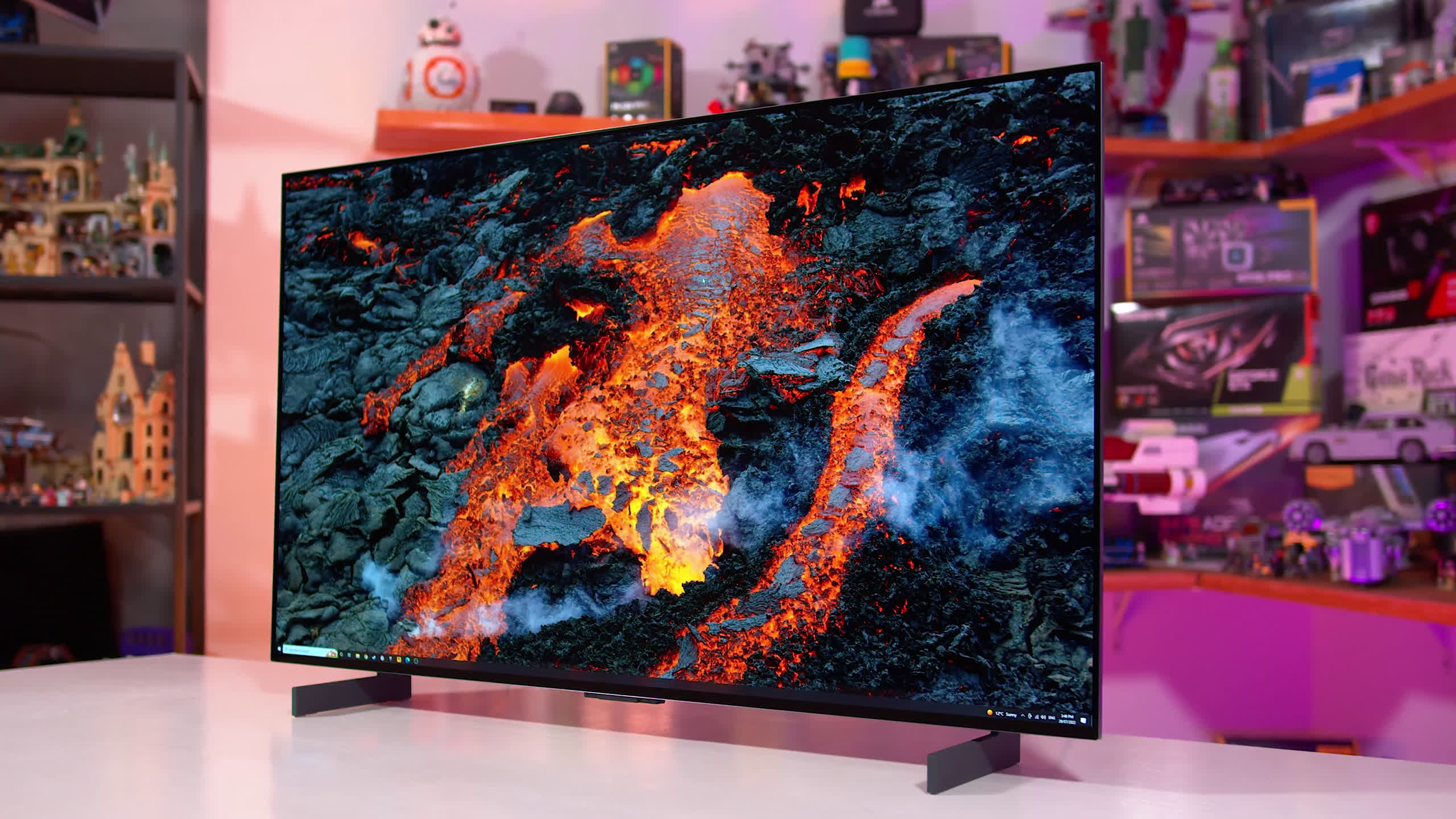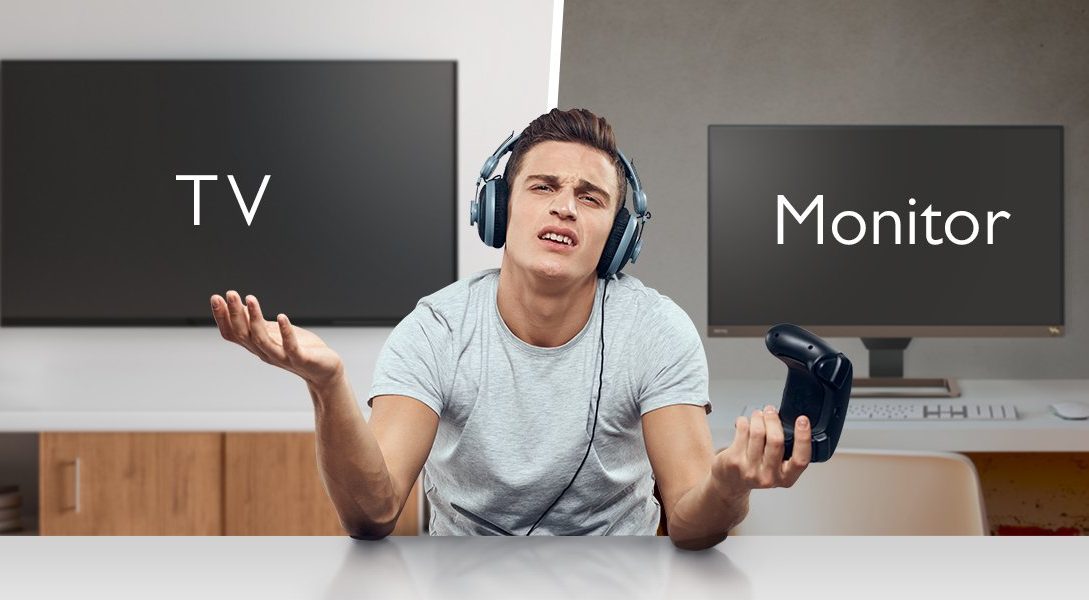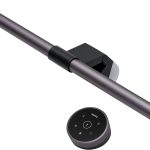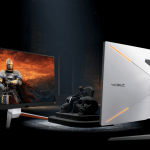A gaming monitor is better than a TV for gaming due to its higher refresh rate and lower input lag. Gaming monitors offer enhanced visual performance and faster response times, making them the preferred choice for gamers looking for a competitive edge.
Gaming enthusiasts often debate whether it’s better to play games on a dedicated gaming monitor or a regular TV. While TVs can offer larger screen sizes and 4K resolution, gaming monitors outshine them in terms of performance. Gaming monitors are designed specifically for gaming, featuring higher refresh rates and lower input lag, resulting in smoother gameplay and faster response times.
With a gaming monitor, players can enjoy a more immersive and responsive gaming experience, especially in fast-paced and competitive games. So, if you’re a serious gamer seeking precision and optimal performance, a gaming monitor should be your go-to choice.

Credit: www.ign.com
Gaming Monitor Vs. Tv
When it comes to gaming, choosing the right display can significantly enhance your gaming experience. A common debate among gamers is whether a gaming monitor or a TV is the better choice. Let’s dive into the details and compare the two options in terms of size, display quality, refresh rate, and response time to help you decide which one suits your gaming needs best.
Size And Display Quality
One of the primary considerations when choosing between a gaming monitor and a TV is the size and display quality. TVs typically offer larger screen sizes, ranging from 40 to 80 inches, making them a popular choice for immersive gaming and group sessions. On the other hand, gaming monitors come in various sizes, ranging from 24 to 32 inches, which can provide a more focused and personal gaming experience.
While size is important, display quality is equally crucial for an exceptional gaming experience. Gaming monitors tend to have higher pixel density with resolutions like 1080p or 4K, resulting in sharper and more detailed visuals. These high resolutions enable you to see every intricate detail, giving you a competitive edge in games that require precise movements and quick reactions.
On the other hand, TVs often sacrifice pixel density for larger screens, which may result in a slight loss in details when compared to gaming monitors. However, modern TVs are catching up with gaming monitors, offering high-resolution options like 4K and even 8K, providing stunning visuals that can rival those of gaming monitors.
Refresh Rate And Response Time
In addition to size and display quality, the refresh rate and response time are crucial factors when determining the suitability of a gaming monitor versus a TV for gaming.
Gaming monitors excel in this aspect, as they typically come with higher refresh rates ranging from 144Hz to 240Hz. A higher refresh rate means smoother animations, reducing motion blur and providing a more fluid and lifelike gaming experience. This is particularly beneficial for fast-paced action games or competitive eSports where every millisecond counts.
Moreover, gaming monitors offer lower response times compared to TVs. Response time refers to how quickly a pixel can change colors, and lower response times result in less motion blur and ghosting. Most gaming monitors have response times of 1ms, ensuring minimal lag between the input from your game controller or keyboard and the on-screen action.
While TVs are improving their refresh rates and response times, they usually lag behind gaming monitors in this aspect. TVs generally offer refresh rates of 60Hz or 120Hz and response times ranging from 5ms to 10ms, which can be noticeable for avid gamers seeking the ultimate responsiveness.
Overall, when it comes to gaming, both gaming monitors and TVs have their own advantages. Gamers looking for a larger screen and immersive experience may prefer TVs, while those seeking high resolution, fast refresh rates, and low response times would lean towards gaming monitors. Assess your gaming preferences and balance them with your budget to make an informed decision that provides the best gaming experience suited to your needs.

Credit: www.lg.com
Enhanced Gaming Experience
Gaming has evolved significantly over the years, with advancements in technology pushing the boundaries of what is possible. One area where this is particularly evident is in the choice of displays that gamers have at their disposal. While many gamers traditionally use televisions for gaming purposes, gaming monitors are becoming increasingly popular. As we explore the concept of an enhanced gaming experience, let’s delve into two key factors that make gaming monitors a worthwhile investment: reduced input lag and immersive gameplay.
Reduced Input Lag
Input lag is the time it takes for an action to occur on the screen after a command is given through a controller or keyboard. When it comes to gaming, every millisecond matters. Gaming monitors are purpose-built for ultra-fast response times, ensuring that your actions are registered and displayed almost instantly.
Compared to televisions, gaming monitors have significantly lower input lag, thanks to features such as high refresh rates and dedicated gaming modes. With refresh rates of 144Hz or even higher, gaming monitors refresh the screen faster, resulting in minimal delay between your input and the on-screen action. This reduced input lag can make all the difference in fast-paced games where split-second decisions are essential.
Moreover, gaming monitors often come equipped with features such as AMD FreeSync or NVIDIA G-Sync, which further minimize input lag and screen tearing. These technologies synchronize the display’s refresh rate with the graphics card’s output, ensuring a smooth and responsive gaming experience.
Immersive Gameplay
Gaming should be a captivating, immersive experience. Gaming monitors excel in this regard compared to TVs due to their inherent design features. One such advantage is their smaller size, allowing you to sit at a comfortable distance and encompassing your field of view. This ensures that you are fully engaged in the game, without any distractions.
Furthermore, gaming monitors typically have a higher pixel density and better color accuracy, resulting in crisp and vibrant visuals. Combined with the ability to display a wide color gamut and HDR (High Dynamic Range) technology, gaming monitors provide a more realistic and visually stunning gaming experience.
Another aspect of immersion lies in the viewing angles. Unlike TVs, gaming monitors are designed for single-user gaming setups. This means that the image quality remains consistent, regardless of your viewing position, preventing any significant color or contrast shifts.
To further enhance the immersive gameplay, some gaming monitors come equipped with built-in speakers or audio output options, allowing you to experience high-quality sound without the need for additional speakers or headphones.
In conclusion, when considering an enhanced gaming experience, gaming monitors offer distinct advantages over televisions. Their reduced input lag and immersive gameplay features make gaming monitors the ideal choice for gamers who demand the utmost precision and an engaging gaming experience. Whether you are a competitive gamer or a casual enthusiast, a gaming monitor is a worthwhile investment that can take your gaming sessions to new heights.
Versatility And Functionality
When comparing a gaming monitor to a TV, versatility and functionality play a crucial role in determining the best choice for your gaming setup.
Multiple Connectivity Options
Gaming monitors offer multiple connectivity options, such as HDMI, DisplayPort, and USB ports. These options ensure seamless connectivity with various devices like gaming consoles, PCs, and streaming devices.
Adaptability To Different Settings
Gaming monitors are highly adaptable to different settings, whether you are gaming in a dimly lit room or a bright environment. They offer features like blue light filters and anti-glare coatings to enhance your gaming experience.
Ergonomics And Comfort
When it comes to gaming, the focus on ergonomics and comfort is crucial. Both gaming monitors and TVs have their own set of advantages, but when it comes to long gaming sessions, the ergonomic features of a gaming monitor take precedence. Let’s explore these aspects in more detail.
Adjustability And Eye Strain
Gaming monitors offer a high degree of adjustability, allowing users to customize the height, tilt, and swivel of the screen to suit their preferences. This level of flexibility plays a significant role in reducing neck and back strain during extended gaming sessions. Conversely, TVs are fixed in their positioning, making it harder to adjust for individual comfort, potentially leading to discomfort and eye strain.
Optimal Viewing Experience
With a gaming monitor, users can achieve an optimal viewing experience due to features like higher refresh rates and lower input lag. These features contribute to smoother gameplay and reduced motion blur, resulting in a more immersive gaming experience. TVs, on the other hand, may not offer the same level of responsiveness and visual clarity.
Price And Value
When it comes to the decision between purchasing a gaming monitor or using a TV for gaming, the price and value aspect plays a crucial role. As a gamer, you want to ensure that your investment provides you with the best gaming experience without breaking the bank. In this section, we will delve into the cost comparison and long-term investment between gaming monitors and TVs.
Cost Comparison
Let’s break down the cost comparison between a gaming monitor and a TV. Generally, gaming monitors tend to be pricier than TVs of a similar size. However, they offer specific features geared towards gaming, such as higher refresh rates, lower response times, and better color accuracy. TVs, on the other hand, may have larger screens and built-in smart TV capabilities, but they often lack the advanced gaming-specific features that monitors provide. Consider your budget and gaming preferences when deciding which option offers the best value for your money.
Long-term Investment
Investing in a gaming monitor is a long-term commitment. While the initial cost may be higher, the benefits it provides for gaming, such as smoother gameplay and reduced input lag, can enhance your overall gaming experience. Additionally, gaming monitors are specifically designed to handle the demands of gaming, ensuring longevity and durability. On the other hand, using a TV for gaming may be a more versatile investment, serving multiple purposes beyond gaming, such as streaming content and watching television shows or movies. Consider the long-term value and versatility of your investment when choosing between a gaming monitor and a TV.

Credit: www.techspot.com
Frequently Asked Questions Of Is A Gaming Monitor Better Than A Tv?
Is It Better To Game On A Monitor Or Tv?
For gaming, a monitor is better due to faster response times and higher refresh rates. TVs may have input lag.
Is Ps5 Better On A Monitor Or Tv?
PS5 can be enjoyed on both a monitor and a TV. The choice ultimately depends on personal preference. Monitors provide a more immersive gaming experience, while TVs offer larger screens for a more cinematic feel. It’s best to consider factors like space, budget, and desired gaming experience when making a decision.
Are Gaming Monitors Worth It?
Yes, gaming monitors are worth it. They offer better visuals, higher refresh rates, and faster response times, enhancing the gaming experience. With improved color accuracy and smoother gameplay, gaming monitors provide an advantage in competitive gaming and make the overall gaming experience more enjoyable.
What Are The Disadvantages Of A Gaming Monitor?
Gaming monitors may have higher cost and limited port options compared to regular monitors. Some may also lack built-in speakers.
Conclusion
In the quest for better gaming experience, gaming monitors outshine TVs due to their enhanced performance and features. From faster refresh rates to low input lag, a gaming monitor offers competitive advantages. Consider your gaming needs to make the right choice between a gaming monitor and a TV.









